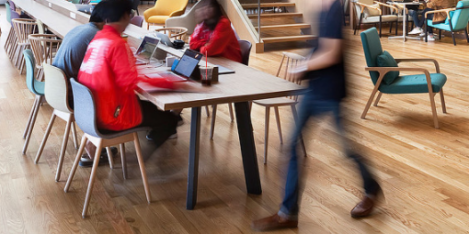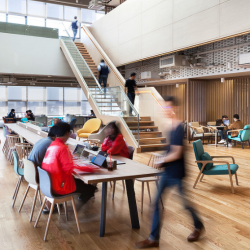To provide the best experiences, we use technologies like cookies to store and/or access device information. Consenting to these technologies will allow us to process data such as browsing behaviour or unique IDs on this site. Not consenting or withdrawing consent, may adversely affect certain features and functions.
The technical storage or access is strictly necessary for the legitimate purpose of enabling the use of a specific service explicitly requested by the subscriber or user, or for the sole purpose of carrying out the transmission of a communication over an electronic communications network.
The technical storage or access is necessary for the legitimate purpose of storing preferences that are not requested by the subscriber or user.
The technical storage or access that is used exclusively for statistical purposes.
The technical storage or access that is used exclusively for anonymous statistical purposes. Without a subpoena, voluntary compliance on the part of your Internet Service Provider, or additional records from a third party, information stored or retrieved for this purpose alone cannot usually be used to identify you.
The technical storage or access is required to create user profiles to send advertising, or to track the user on a website or across several websites for similar marketing purposes.
 The productivity benefits of homeworking appear to have increased during the pandemic, with employers now more likely to say that the shift to homeworking has boosted productivity (33 percent) than they were in June 2020 (28 percent). This is according to new research by the CIPD, based on a survey of 2,000 employers and in-depth interviews with seven organisations in different sectors. More →
The productivity benefits of homeworking appear to have increased during the pandemic, with employers now more likely to say that the shift to homeworking has boosted productivity (33 percent) than they were in June 2020 (28 percent). This is according to new research by the CIPD, based on a survey of 2,000 employers and in-depth interviews with seven organisations in different sectors. More →





 A new report from think tank Demos and Legal & General calls on the UK Government to back policy change that supports growth of hybrid working and local offices to drive forward its plans for regeneration and economic growth. The report,
A new report from think tank Demos and Legal & General calls on the UK Government to back policy change that supports growth of hybrid working and local offices to drive forward its plans for regeneration and economic growth. The report, 
 New data from
New data from 
 Working from home is exacerbating an ‘always on’ culture. Data from a study of UK employees, conducted by virtual team building company
Working from home is exacerbating an ‘always on’ culture. Data from a study of UK employees, conducted by virtual team building company 
 Lockdown meant that the choice to work from home was made for us. However, for many the decision to continue to do so post-lockdown will be a personal choice. The question we should all ask ourselves is, whether when we are outside of any lockdown restrictions, is working from home really a workplace revolution or simply an act of selfishness? For thousands of workers who’ve spent years of their lives commuting to offices that feel more like soul-less factories than inspiring and engaging workplaces, it’s no wonder that enforced work from home has proven popular.
Lockdown meant that the choice to work from home was made for us. However, for many the decision to continue to do so post-lockdown will be a personal choice. The question we should all ask ourselves is, whether when we are outside of any lockdown restrictions, is working from home really a workplace revolution or simply an act of selfishness? For thousands of workers who’ve spent years of their lives commuting to offices that feel more like soul-less factories than inspiring and engaging workplaces, it’s no wonder that enforced work from home has proven popular. 
 In a recent
In a recent 
 A survey issued by architecture, design, and planning firm
A survey issued by architecture, design, and planning firm 
 Workers are feeling compelled to demonstrate presenteeism and availability to employers in the wake of the COVID-19 outbreak, claims a new global study from the
Workers are feeling compelled to demonstrate presenteeism and availability to employers in the wake of the COVID-19 outbreak, claims a new global study from the 




















March 5, 2021
From the archive: Flexible working may improve productivity, but does it diminish creativity?
by Maciej Markowski • Comment, Flexible working, Workplace